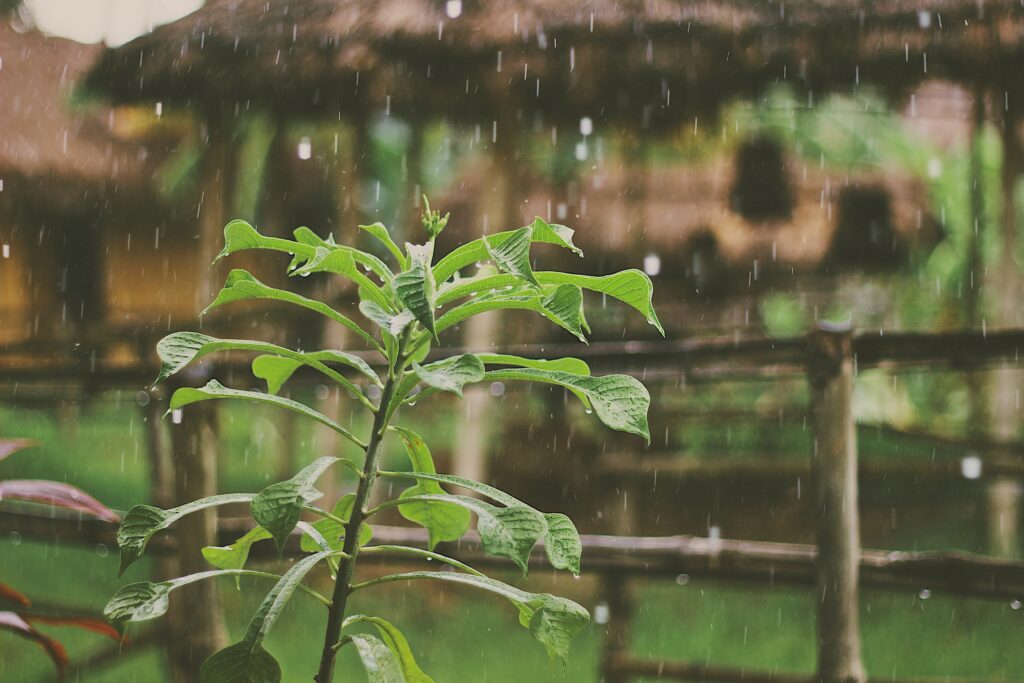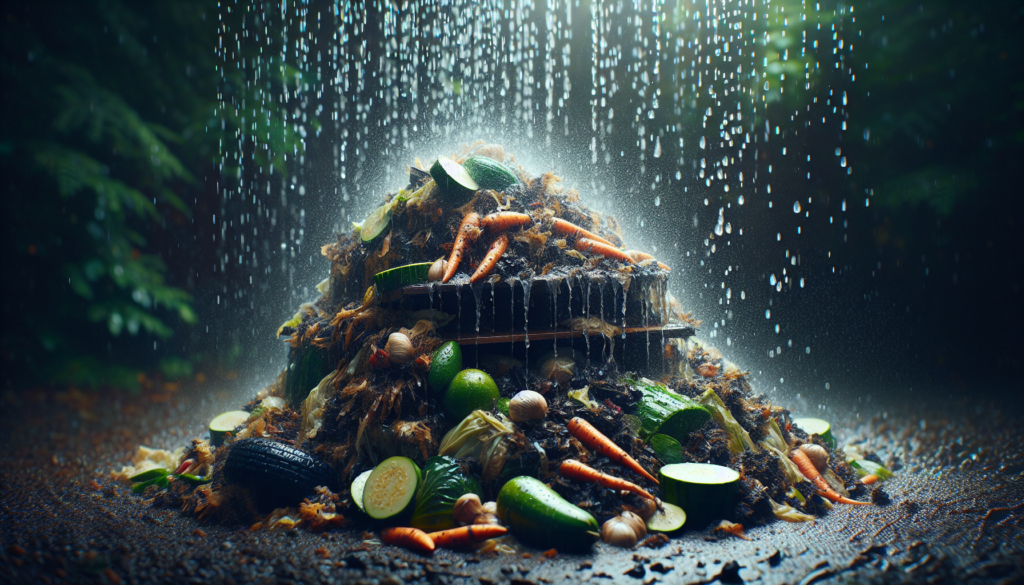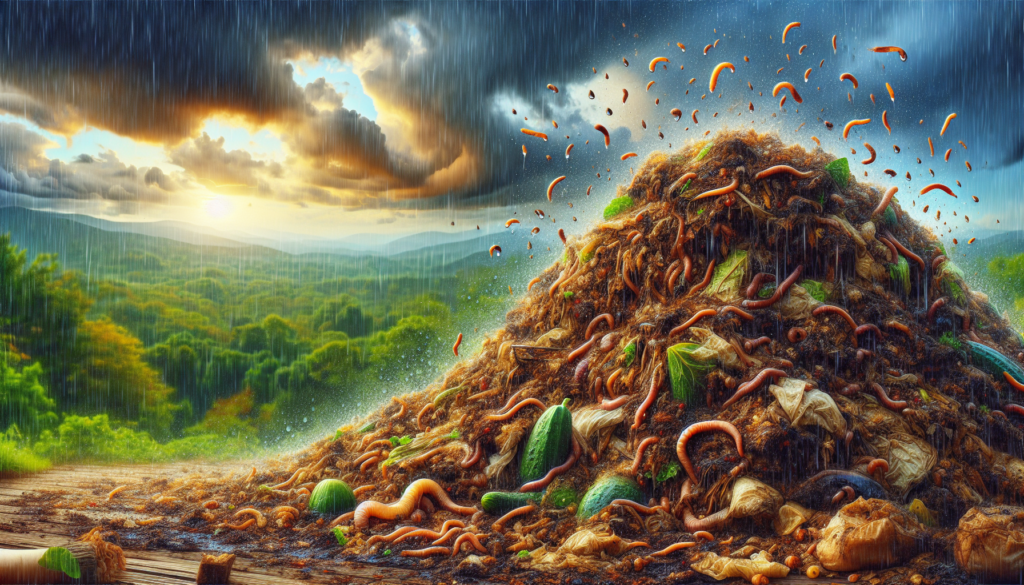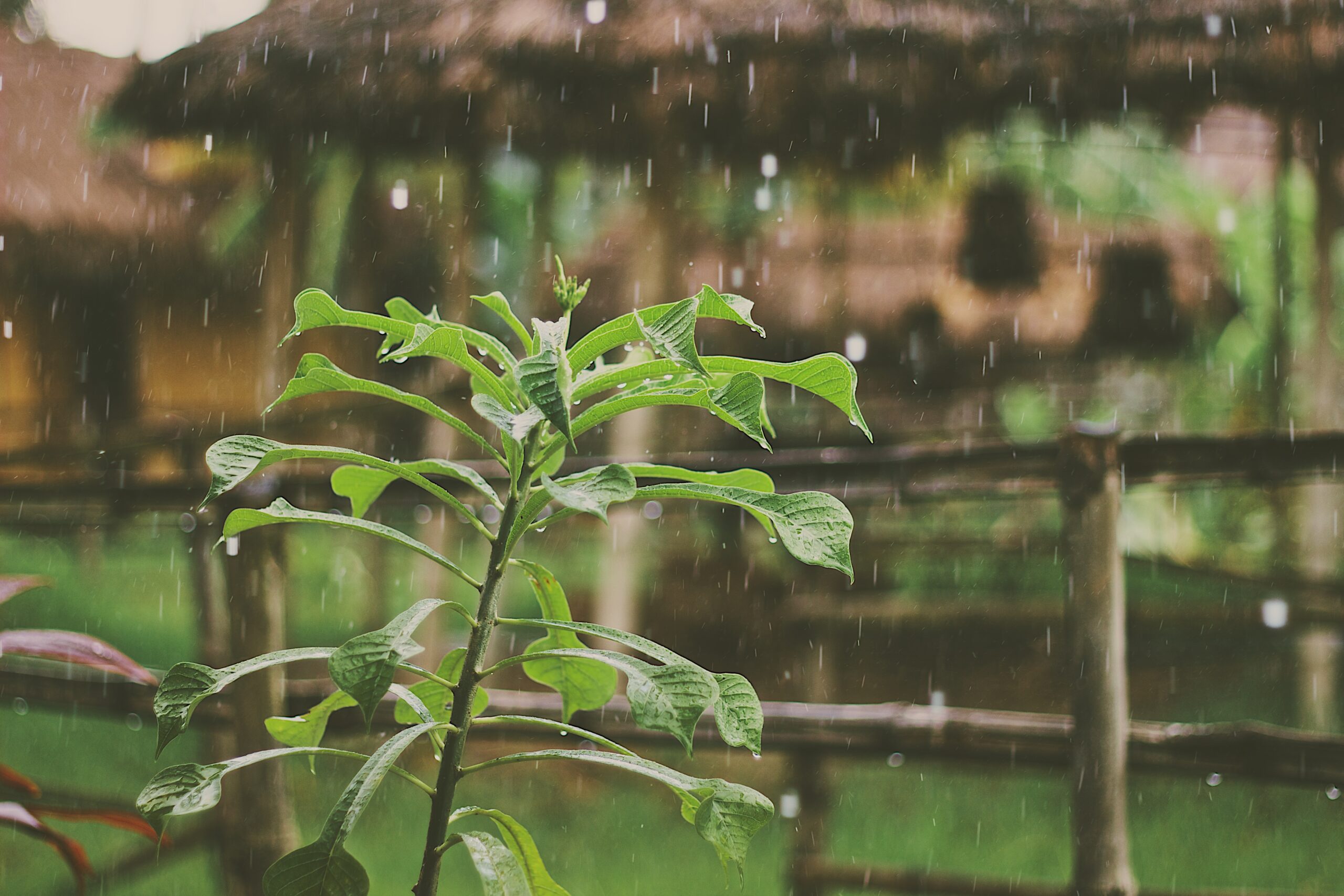Should Compost Be Rained On: Introduction
Imagine this: you’ve just started your composting journey, diligently adding kitchen scraps, grass clippings, and garden waste to your compost bin. But then, out of nowhere, a downpour of rain begins to pour down. Should you be worried about your precious compost getting wet? Should compost be rained on?
In this article, we will explore the benefits and potential drawbacks of rain on your compost pile, helping you make the best decision for your thriving composting efforts. So, grab your umbrella and let’s dive into the world of composting in the rain!

Check Out Our Recommended Composting Products on Amazon Right Here!
Exploring the World of Compost
The Importance of Water in Composting
Composting is a natural process of decomposition that converts organic waste into nutrient-rich soil. While composting requires a mix of organic materials, such as food scraps, yard trimmings, and paper waste, one crucial ingredient is often overlooked – water. Water plays a vital role in the composting process, facilitating the breakdown of materials, creating favorable conditions for microorganisms, and ensuring the overall success of composting endeavors. In this article, we will explore the significance of water in composting and delve into the optimal moisture level required for effective composting.
Check Out Our Recommended Composting Products on Amazon Right Here!
Water’s Role in the Composting Process
Water is essential in the composting process as it provides the necessary moisture for microorganisms to thrive. These microorganisms, including bacteria, fungi, and actinomycetes, break down the organic waste into simpler compounds. When you supply water to the compost pile, you encourage the growth and activity of these beneficial organisms, accelerating the decomposition process.
Furthermore, water aids in maintaining the optimal temperature within the compost pile. As the microorganisms metabolize the organic matter, they generate heat. Adequate moisture content ensures that the temperature remains within the desired range for efficient composting. This optimal temperature allows the microorganisms to function optimally, resulting in faster decomposition and the production of high-quality compost.

The Optimal Moisture Level for Composting
While water is essential for composting, it is equally crucial to maintain the correct moisture balance. The optimal moisture level for composting is around 40-60%. If the pile becomes too dry, the decomposition process slows down, as the microorganisms become less active. On the other hand, if the pile becomes too wet, it can lead to various issues such as waterlogging, nutrient loss, and increased risk of pests and weeds.

Benefits of Rainwater for Composting
Rainwater can be a valuable resource for composting, providing several benefits to the process. Let’s explore the advantages of using rainwater in composting.
Rainwater as a Source of Nutrients
Rainwater contains essential nutrients that can enhance the composting process. As rainwater falls through the atmosphere, it picks up nitrogen, phosphorus, and other vital elements present in the air. When this nutrient-rich rainwater reaches your compost pile, it enriches the organic materials, providing the microorganisms with an additional source of nutrition. This influx of nutrients helps to maintain a healthy and vigorous microbial population, resulting in faster decomposition and a nutrient-dense end product.
Rainfall Facilitates the Decomposition Process
Rainfall helps to activate the microorganisms present in the compost pile, stimulating their decomposing activity. The moisture provided by rainwater ensures that the organic materials remain hydrated, allowing the microorganisms to efficiently break down the waste. Additionally, rainwater can wash away any excess heat generated during the composting process, preventing the pile from overheating and potentially becoming unbalanced.

Potential Issues with Excessive Rainfall
While rainwater can be beneficial for composting, excessive rainfall can lead to various challenges that must be addressed. Let’s explore the potential issues associated with excessive rainfall in composting.
Waterlogging and Anaerobic Conditions
Excessive rainfall can saturate the compost pile, causing waterlogging. Waterlogged compost creates anaerobic conditions, meaning there is a lack of oxygen available for the microorganisms. In such conditions, the beneficial aerobic microorganisms responsible for decomposition cannot function effectively. This can lead to a slowdown in the composting process and the production of unpleasant odors.
Loss of Nutrients and Leaching
Excessive rainfall can cause the nutrients present in the compost pile to leach away. As rainwater passes through the pile, it can carry away valuable nutrients, especially if the compost pile is not properly covered or protected. Nutrient leaching can result in a reduction in the overall nutrient content of the compost, diminishing its value as a soil amendment. To minimize nutrient loss, it is important to ensure proper drainage and cover the compost pile during heavy rainfall.
Increased Risk of Unwanted Pests and Weeds
Excessive rainfall can create an environment conducive to the growth of unwanted pests and weeds. Pests such as slugs and snails are attracted to moist conditions and can proliferate in a waterlogged compost pile. Additionally, weed seeds present in the compost may germinate more readily in damp conditions, leading to an infestation of unwanted plants. Proper management of moisture levels can help mitigate these issues and maintain a healthy composting environment.

Strategies for Managing Moisture Levels
To combat the challenges posed by excessive rainfall and maintain the optimal moisture level for composting, several strategies can be employed. Let’s explore some effective ways to manage moisture levels in your compost pile.
Utilizing Rain Barrels or Rainwater Harvesting Systems
One effective approach is to collect rainwater using rain barrels or rainwater harvesting systems. These systems allow you to capture and store rainwater for future use in the composting process. By directing the collected rainwater onto the compost pile during dry periods, you can supplement the moisture content without relying solely on rainfall. This helps to maintain optimal moisture levels, even during extended periods of drought.
Covering Compost Piles
Covering your compost pile is another effective strategy for managing moisture levels. By placing a cover, such as a tarp or plastic sheet, over the compost pile, you can prevent excess rainwater from entering and oversaturating the pile. Additionally, a cover helps to retain the moisture already present in the pile, reducing the risk of drying out during drought conditions. However, it is important to ensure proper ventilation to prevent the development of anaerobic conditions.
Monitoring Moisture Levels and Adjusting as Needed
Regularly monitoring the moisture levels of your compost pile is crucial for maintaining optimal conditions. One way to assess moisture is by performing a simple squeeze test. Take a handful of compost and squeeze it tightly in your hand. If water drips out, the pile is too wet. If the compost remains crumbly and does not hold its shape, it is too dry. Adjust the moisture level by adding water or dry materials, such as straw or shredded newspaper, accordingly. Regularly check and adjust the moisture levels to ensure a healthy and productive composting process.
Should Compost Be Rained On: Conclusion
In conclusion, water plays a vital role in the composting process, facilitating decomposition, and creating favorable conditions for microorganisms. While rainwater can provide essential nutrients and activate the microorganisms, excessive rainfall can lead to issues such as waterlogging, nutrient loss, and increased risks of pests and weeds.
Proper management of moisture levels through methods like rainwater harvesting, covering compost piles, and regular monitoring can help ensure successful composting and the production of nutrient-rich compost. So, next time it rains, embrace the benefits of water in composting, but also be mindful of its potential challenges and take appropriate measures to maintain the optimal moisture balance in your compost pile.
Check Out Our Recommended Composting Products on Amazon Right Here!




